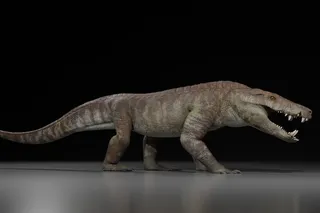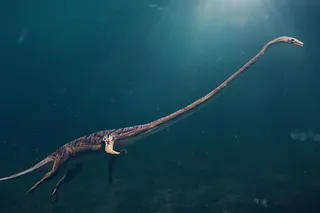One of the most important, most mystifying moments in the history of the planet was the emergence of the first fish out of water and the evolution of those fish into the earliest land-living tetrapods approximately 250 million years ago.
Paleontologists have long endeavored to explain this evolutionary transition, and according to a study in eLife, investigations into ancient lungfish fossils could help. The studies suggest important information about the formation and the function of the first tetrapod brains.
Scientists theorize that the tetrapods, the set of traditionally four-limbed, land-living vertebrates that includes amphibians, reptiles and mammals, all evolved out of ancient fish. In the Middle Devonian period, they say, the powerful, fleshy fins of lobe-finned fish turned into limbs, and the tetrapod appeared for the first time.
To understand this transformation, paleontologists often turn to the lungfish, one of the closest lobe-finned ancestors of the tetrapods that is still ...















